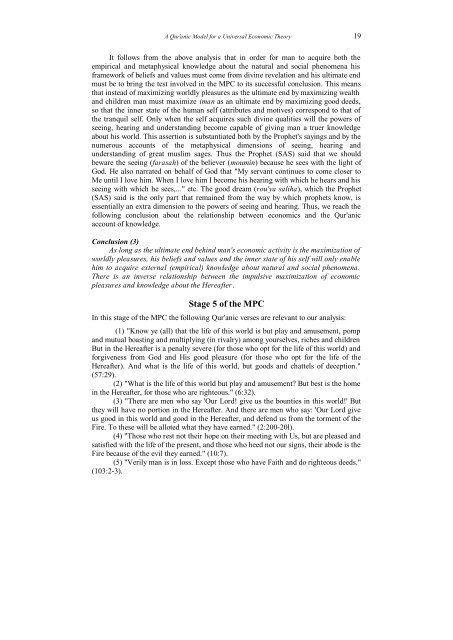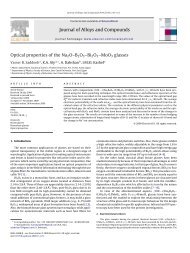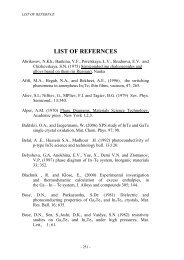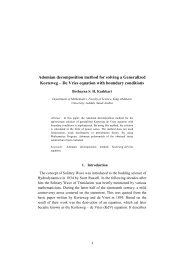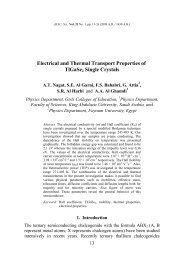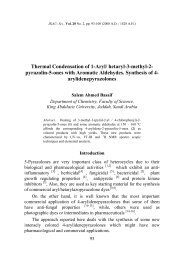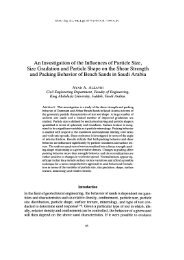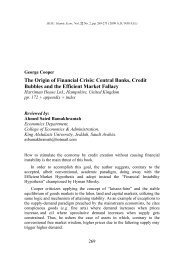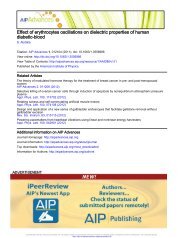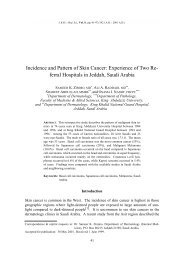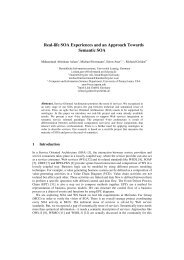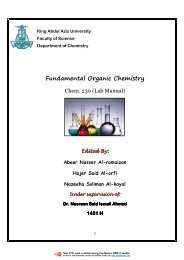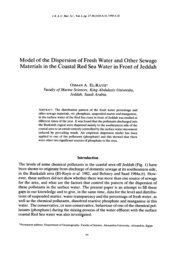A Qur'anic Model for a Universal Economic Theory
A Qur'anic Model for a Universal Economic Theory
A Qur'anic Model for a Universal Economic Theory
You also want an ePaper? Increase the reach of your titles
YUMPU automatically turns print PDFs into web optimized ePapers that Google loves.
A Qur’anic <strong>Model</strong> <strong>for</strong> a <strong>Universal</strong> <strong>Economic</strong> <strong>Theory</strong> 19<br />
It follows from the above analysis that in order <strong>for</strong> man to acquire both the<br />
empirical and metaphysical knowledge about the natural and social phenomena his<br />
framework of beliefs and values must come from divine revelation and his ultimate end<br />
must be to bring the test involved in the MPC to its successful conclusion. This means<br />
that instead of maximizing worldly pleasures as the ultimate end by maximizing wealth<br />
and children man must maximize iman as an ultimate end by maximizing good deeds,<br />
so that the inner state of the human self (attributes and motives) correspond to that of<br />
the tranquil self. Only when the self acquires such divine qualities will the powers of<br />
seeing, hearing and understanding become capable of giving man a truer knowledge<br />
about his world. This assertion is substantiated both by the Prophet's sayings and by the<br />
numerous accounts of the metaphysical dimensions of seeing, hearing and<br />
understanding of great muslim sages. Thus the Prophet (SAS) said that we should<br />
beware the seeing (farasah) of the believer (moumin) because he sees with the light of<br />
God. He also narrated on behalf of God that "My servant continues to come closer to<br />
Me until I love him. When I love him I become his hearing with which he hears and his<br />
seeing with which he sees,..." etc. The good dream (rou'ya saliha), which the Prophet<br />
(SAS) said is the only part that remained from the way by which prophets know, is<br />
essentially an extra dimension to the powers of seeing and hearing. Thus, we reach the<br />
following conclusion about the relationship between economics and the <strong>Qur'anic</strong><br />
account of knowledge.<br />
Conclusion (3)<br />
As long as the ultimate end behind man's economic activity is the maximization of<br />
worldly pleasures, his beliefs and values and the inner state of his self will only enable<br />
him to acquire external (empirical) knowledge about natural and social phenomena.<br />
There is an inverse relationship between the impulsive maximization of economic<br />
pleasures and knowledge about the Hereafter .<br />
Stage 5 of the MPC<br />
In this stage of the MPC the following <strong>Qur'anic</strong> verses are relevant to our analysis:<br />
(1) "Know ye (all) that the life of this world is but play and amusement, pomp<br />
and mutual boasting and multiplying (in rivalry) among yourselves, riches and children<br />
But in the Hereafter is a penalty severe (<strong>for</strong> those who opt <strong>for</strong> the life of this world) and<br />
<strong>for</strong>giveness from God and His good pleasure (<strong>for</strong> those who opt <strong>for</strong> the life of the<br />
Hereafter). And what is the life of this world, but goods and chattels of deception."<br />
(57:29).<br />
(2) "What is the life of this world but play and amusement? But best is the home<br />
in the Hereafter, <strong>for</strong> those who are righteous." (6:32).<br />
(3) "There are men who say 'Our Lord! give us the bounties in this world!' But<br />
they will have no portion in the Hereafter. And there are men who say: 'Our Lord give<br />
us good in this world and good in the Hereafter, and defend us from the torment of the<br />
Fire. To these will be alloted what they have earned." (2:200-20l).<br />
(4) "Those who rest not their hope on their meeting with Us, but are pleased and<br />
satisfied with the life of the present, and those who heed not our signs, their abode is the<br />
Fire because of the evil they earned." (10:7).<br />
(5) "Verily man is in loss. Except those who have Faith and do righteous deeds."<br />
(103:2-3).


